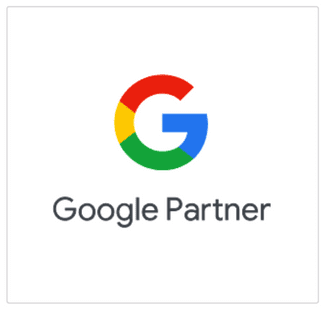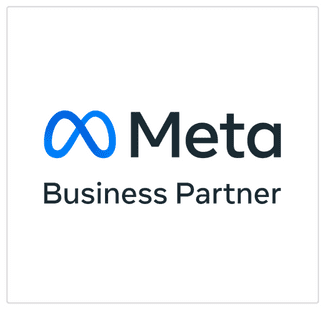Lead generation campaigns are essential in the modern digital marketing landscape, representing a vital strategy for attracting potential customers. These campaigns are designed to identify and capture the interest of consumers who might be interested in the products or services your business offers. Whether you operate in healthcare, retail or a B2B industry, effective lead generation campaigns can significantly influence customer relationships and significantly increase sales. By converting casual visitors into loyal customers, your business can develop a solid customer base, essential for long-term success.
This article will guide you through the key concepts of lead generation campaigns, explaining how they work and how they can be implemented effectively. We will explore the steps needed to create and manage successful campaigns, from choosing the right channels and platforms, to defining the right audience and creating engaging content. Additionally, we’ll discuss the right time to utilize platforms like Facebook Lead Generation and examine how these campaigns compare to traditional methods, such as landing pages, to ensure the best lead collection strategy.
What are lead generation campaigns?
Lead generation campaigns are essential marketing strategies to attract and capture the interest of potential customers. These campaigns are designed to convert website visitors or social media users into leads, i.e. people who have expressed interest in the products or services offered by a business. The process involves using forms, valuable content or attractive offers that motivate visitors to leave their contact details. For example, a software company may offer a free business process optimization guide in exchange for the user’s email address.
How do lead generation campaigns work?
The lead generation process is based on creating offers and valuable content that will attract the interest of your audience. Offers can include in-depth guides, e-books, special discounts or invitations to webinars, all designed to pique curiosity and add value. For example, an online fashion store may offer a 10% discount on your first purchase in exchange for a newsletter subscription. In exchange for this content, potential customers provide their contact details via a lead form. This data allows the business to continue communication and create personalized relationships with each potential customer, increasing the chances of conversion.
What is a qualified lead?
A qualified lead is someone with a high potential to make a purchase or be interested in what you offer. Identifying qualified leads starts with defining the ideal customer profile, also known as the customer avatar. It is essential to establish this profile in order to properly evaluate leads.
Once you have established the avatar, segment customers based on their actions related to your business. Identifying the skill stage of each lead allows you to customize offers and strategies to meet their needs. Implementing a strategy tailored to each lead can significantly increase your chances of conversion.
Benefits of lead generation
Lead generation offers multiple benefits. First of all, it increases your number of followers and therefore your brand. Attracting a wide audience increases your chances of converting them into loyal customers. Also, expanding your customer base is essential for your business to thrive, allowing you to attract new customers and offset losses.
Gathering reviews becomes easier with a clear lead generation strategy, and reviews strongly influence potential customers. As you implement more strategies and campaigns, you will improve the quality of leads and become more creative in meeting customer needs, thus increasing revenue.
Disadvantages of lead generation
However, there are disadvantages. One major risk is losing the customer if you don’t keep turning them from cold to warm audiences. It is crucial to maintain contact and prepare customers for each stage by giving them the attention they need. Without a consistent strategy, your efforts are likely to become ineffective.
Adopting a lead generation strategy requires a complete understanding of the process to minimize risks and maximize benefits.
Types of leads
Message leads
These leads involve initiating a conversation through messaging platforms such as Facebook Messenger. They are ideal for businesses that offer personalized consulting, as they allow for quick and direct interaction with potential clients. Through Messenger Ads, a business can respond immediately to questions and offer solutions tailored to each client’s needs, which increases the chances of conversion.
Leads through WhatsApp:
Using WhatsApp to generate leads is an effective method for businesses that rely on trusted relationships. Users can initiate a quick conversation with a simple click, which facilitates smooth and personalized communication. This type of lead is ideal for businesses that offer quick support and want to build a close relationship with their customers.
Leads by filling out a form:
The classic lead generation method where users fill out a form to provide their contact information. This is effective for collecting detailed lead data needed to personalize offers and subsequent messages. For example, an e-commerce site may ask for information such as name, email and product preferences to provide personalized recommendations.
Why do users prefer texting to phone calls?
According to recent studies, about 75% of consumers prefer to communicate via text messages or messaging apps instead of phone calls. This is due to several factors:
Users often prefer texting because of the convenience of responding at their own pace, without the pressure of a direct phone conversation. Messages are considered faster and less intrusive, allowing multitasking. They also offer the advantage of documentation, as conversations remain saved, allowing users to review important information at any time. These preferences should be taken into account when choosing sources for lead generation campaigns, as adapting to customer preferences can significantly increase success rates and user satisfaction.
Steps in creating a lead generation campaign on Facebook
Creating an effective lead generation campaign on Facebook is essential to attract qualified candidates to a recruitment firm. Facebook offers a robust platform with a large number of active users and advanced targeting options, making it easy to collect important data from potential clients. Next, we will detail the steps required to successfully develop and implement such a campaign, ensuring that each step is optimized to maximize conversions and achieve the desired goals. These steps will guide you from planning and setup to launch and monitoring, giving you a clear and structured framework for your campaign.
Campaign planning:
Start by defining your lead generation campaign objectives. Facebook is an excellent platform due to its large number of active users and advanced targeting features. The goal is to attract interested candidates and collect relevant data.
Campaign setup in Ads Manager:
Go to Ads Manager and choose the “Lead Generation” objective. It is important to name the campaign clearly so that it is easily recognizable later. Make sure you accept the terms of use for lead generation ads.
Define the audience:
Select targeting criteria that match your ideal candidate profile. You can choose geographic, demographic and interest targeting. Also use customized audiences, such as site visitors or those who have interacted with your Facebook page.
Choice of placements and devices:
I recommend editing your placements and selecting Facebook Feeds, possibly Instagram if you’ve had good results previously. Focus on mobile devices, as most users access ads from them.
Budgeting and scheduling:
Decide on a daily or total budget and define the campaign schedule, including start and end dates. This will help you control your expenses and optimize the running time of your ads.
Bidding strategy:
Choose a manual bidding strategy to have more control over costs. You can adjust the bid amount depending on the initial performance of the campaign.
Ad Creation:
Name and build the ad using attractive formats such as video, single banner or carousel. Make sure the visuals and copy are relevant and engaging to grab the attention of the target audience.
Lead form development:
Create a simple and effective lead form. In the Introduction, add a compelling headline and a cover image. In Questions, customize fields to collect essential information such as name, email and phone.
Add personalized questions:
Add additional questions to get detailed information about candidates. For example, you can ask about favorite locations or motivation for joining the company. This helps to qualify leads.
Privacy policy and thank you screen:
Include the link to the data privacy policy to ensure transparency. At the Thank You Screen, add a message of appreciation and a button that directs users to your website for more information.
Finalize and launch the campaign:
Once you’ve checked all elements, save and finalize the form. The campaign will be reviewed by Facebook before going live. Make sure all details are correct as the form cannot be edited afterwards.
Conclusions
Lead generation campaigns are powerful tools for business growth, but they come with significant challenges. One pain point is correctly identifying qualified leads. For example, without proper segmentation, you may attract an audience that is not interested in your products or services, wasting valuable resources.
Another issue is effective communication management. It is essential to create personalized messages that resonate with the needs and interests of potential customers. Without a well-thought-out communication strategy, you risk losing the connection with them and lowering your conversion rate.
In addition, campaign adaptability is crucial. The market is changing rapidly, and not adjusting campaigns according to current trends can lead to under-expected results. For example, using platforms that are no longer popular or ignoring new technologies can affect campaign effectiveness.
By confronting these challenges with a strategic approach and focusing on your customers’ real needs, you can turn these difficulties into opportunities for growth and success.
If you want help in implementing your Lead Generation campaigns or need support for their strategy and creation, re7consulting facebook ads agency is with you. Contact us to discover how Facebook Ads services can turn leads into loyal customers and bring success to your business. Find out more about how we can help you!







